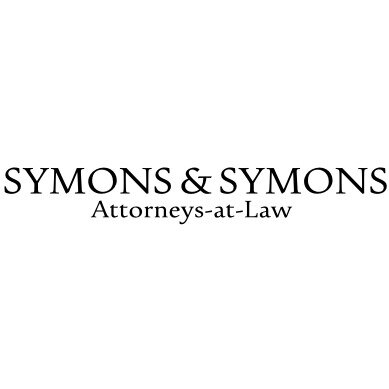Best Art & Cultural Property Law Lawyers in Cayman Islands
Share your needs with us, get contacted by law firms.
Free. Takes 2 min.
Or refine your search by selecting a city:
List of the best lawyers in Cayman Islands
About Art & Cultural Property Law in Cayman Islands
Art & Cultural Property Law in the Cayman Islands is a specialized area of legal practice that deals with the protection, regulation, and management of cultural heritage and art assets. This field encompasses a range of issues including the sale, acquisition, ownership, and transfer of artworks and cultural objects. The Cayman Islands, as a popular destination for art collectors and investors, has specific regulations and frameworks designed to safeguard cultural property and support the art community. Local statutes align with international conventions to ensure the protection of cultural heritage and the proper conduct of art transactions.
Why You May Need a Lawyer
Individuals may require legal assistance in Art & Cultural Property Law for various reasons, including:
- Buying or selling artwork or cultural artifacts, particularly when large sums or valuable pieces are involved.
- Disputes over the provenance or ownership of art and cultural properties.
- Navigating the complexities of international art transactions and ensuring compliance with export and import laws.
- Assisting in estate planning to include art and cultural properties.
- Addressing issues related to stolen or illegally obtained art and cultural artifacts.
- Compliance with local and international art laws and regulations.
Local Laws Overview
The Cayman Islands law incorporates several key aspects that are crucial for Art & Cultural Property Law.
- There are statutes related to the acquisition and transfer of art, requiring proper documentation of provenance to prevent illicit trade.
- The Islands adhere to international treaties such as the UNESCO Convention, which governs the protection of cultural property.
- Local legislation may require permits for the export of cultural goods to ensure they are not lost to the country.
- Specific tax laws apply to the trade and inheritance of art pieces, necessitating knowledgeable legal interpretation.
Frequently Asked Questions
What is the importance of provenance in art transactions?
Provenance is critical in establishing the history of an artwork, determining its authenticity, and ensuring a legitimate chain of ownership, which is essential to avoid legal disputes.
How does Cayman Islands law protect cultural heritage?
Through local regulations and adherence to international conventions, the Cayman Islands implement measures to prevent the looting, illicit trade, and unlawful export of cultural property.
What should I consider when investing in art abroad?
Seek legal counsel to understand international trade laws, tax implications, and ensure artworks have verifiable provenance to avoid legal complications.
Are there specific laws governing art auctions in the Cayman Islands?
Yes, auction houses are required to adhere to regulations ensuring transparency, authenticity, and legal compliance in art sales.
Can cultural property be included in estate planning?
Yes, cultural property can be part of estate planning, but this requires careful legal structuring to address valuation, taxes, and distribution.
What actions can be taken if an artwork is stolen?
Report to the authorities immediately, consult with legal professionals, and consider possible recovery actions through legal channels and international cooperation.
How can I ensure compliance with export laws for art?
Consult with legal experts to understand the necessary permits and documentation required by both local and international laws for exporting art.
Is art investment subject to tax in the Cayman Islands?
Yes, there may be tax considerations involved in art investment transactions, necessitating expert legal advice to manage tax liabilities effectively.
How does one verify the authenticity of a cultural artifact?
Engage experts for authentication, and review thorough documentation and provenance records to establish the authenticity of cultural artifacts.
What are the legal ramifications of acquiring illegally obtained artifacts?
Acquiring such artifacts can lead to severe legal consequences, including the potential for criminal charges and loss of the artifact; proper due diligence is essential.
Additional Resources
- Cayman Islands National Museum: Provides insights into local cultural heritage and artifacts.
- The Department of Customs and Border Control: Offers guidelines on the import and export of cultural property.
- UNESCO Convention on Cultural Property: An international framework providing guidance on cultural property protection.
Next Steps
If you require legal assistance in Art & Cultural Property Law, consider taking the following actions:
- Consult with a specialization lawyer in art law and cultural property.
- Gather all related documentation of your art collection for legal review.
- Familiarize yourself with local and international laws pertaining to art and cultural heritage.
- Engage experts for due diligence when acquiring new art pieces.
- Reach out to relevant governmental departments for guidance on compliance with local regulations.
Lawzana helps you find the best lawyers and law firms in Cayman Islands through a curated and pre-screened list of qualified legal professionals. Our platform offers rankings and detailed profiles of attorneys and law firms, allowing you to compare based on practice areas, including Art & Cultural Property Law, experience, and client feedback.
Each profile includes a description of the firm's areas of practice, client reviews, team members and partners, year of establishment, spoken languages, office locations, contact information, social media presence, and any published articles or resources. Most firms on our platform speak English and are experienced in both local and international legal matters.
Get a quote from top-rated law firms in Cayman Islands — quickly, securely, and without unnecessary hassle.
Disclaimer:
The information provided on this page is for general informational purposes only and does not constitute legal advice. While we strive to ensure the accuracy and relevance of the content, legal information may change over time, and interpretations of the law can vary. You should always consult with a qualified legal professional for advice specific to your situation.
We disclaim all liability for actions taken or not taken based on the content of this page. If you believe any information is incorrect or outdated, please contact us, and we will review and update it where appropriate.
Browse art & cultural property law law firms by city in Cayman Islands
Refine your search by selecting a city.














